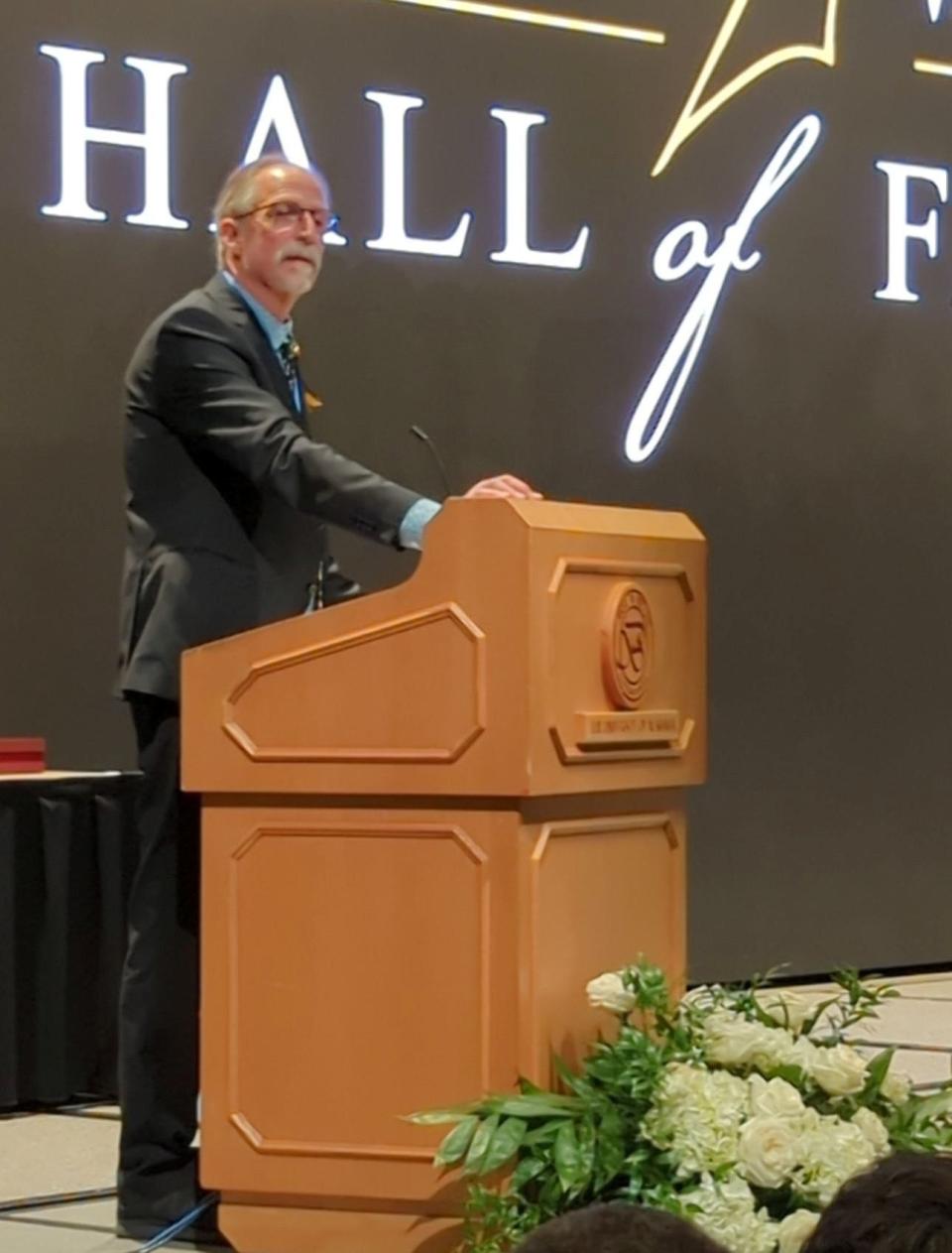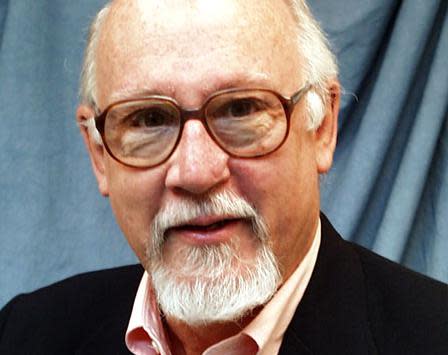'Big Fish' author writes to understand death of his brother-in-law | DON NOBLE
We all know the work of Daniel Wallace: six novels, usually comic, beginning with “Big Fish,” and a charming children’s book, “The Cat’s Pajamas,” which he also illustrated.
This new nonfiction book, “This Isn’t Going to End Well: The True Story of a Man I Thought I Knew,” is also gracefully written (Wallace is incapable of writing an ugly sentence) but the tone, the voice, while personal and pleasing, is mostly serious business.
The subject of this study or biography, or whatever one chooses to call it, is William Nealy, Wallace’s brother-in-law, six years older, his mentor and friend.
Wallace stresses throughout that Nealy was, to him and many others, a kind of superhero, comparing him to Clint Eastwood for cool, Ernest Hemingway for his capacity to master dangerous new enterprises.

Nealy built his own house, became an expert at mountain climbing, in-line skating, mountain biking, wild river kayaking and canoeing. He was a cartoonist and a writer, a map maker. He kept pet snakes. He published a number of books, books he wrote after mastering some area of adventure, and illustrated them himself.
He was, in his world, famous.
It cost him physically. Nealy suffered injuries. He had a bad back, was in pain a good deal, but tireless in his adventures.
Daniel, meanwhile, growing up in Mountain Brook, was a young man largely without direction.
He had changed colleges, from Emory University to the University of North Carolina at Chapel Hill, not graduated, and did not want to join his father’s import business even though he worked at it for three years in Japan, which was, he admits, fun.
Being with William, watching William, even living with Daniel’s sister Holly and William for periods of time, inspired Daniel himself to become a cartoonist, and after a long apprenticeship, with five unpublished novels, a world famous and best-selling author.
So, he was understandably horrified when, in 2001, William took his own life, in a sense deserting Daniel and unforgivably, deserting his wife, Holly, who suffered terribly from rheumatoid arthritis and needed William’s constant and devoted care.
The shock and the anger are palpable.
Determined to understand what happened, Daniel studies William’s life. And then Daniel finds and reads his journals, in which William had expressed his own fears, and most specifically, his depression, for years, revealing a dark inner life. He was sometimes on the brink of suicide and then, finally, with careful forethought and planning, did go through with it, leaving more than a note — a kind of manifesto.
It seems that all the beer and marijuana, the frantic activity — climbing up the mountains and roaring down the rivers — was a way of concentrating outward, a way of avoiding looking inwards, because the depression was always there. As Wallace puts it: " William ... lived in his own secret room, the narrow confines of an interior life with space for only one, and a much darker space than I'd ever imagined it would be."
More: Ecologist advises people to pay attention to the world around us | DON NOBLE
The effect on Holly, Daniel, and on William's other friends was a grief that has lasted over 20 years. One hopes that the writing of this book was therapeutic for Wallace, in some way cathartic, but there is no certainty of that. Of course, Daniel and the reader wonder, is there something that could have been done? Could this have been prevented?
David Brooks recently published a piece in the New York Times about the suicide of his friend and concluded all you can do is assure your friend that you care about him, are there for him. Reminding him of his fine life and accomplishments will not help. He won’t believe you.
William could not convince himself that he was worthy of continuing to live. Daniel couldn’t have either, but he has done a heroic job here of trying to understand what we finally cannot know.

Don Noble’s newest book is Alabama Noir, a collection of original stories by Winston Groom, Ace Atkins, Carolyn Haines, Brad Watson, and eleven other Alabama authors.
“This Isn’t Going to End Well: The True Story of a Man I Thought I Knew”
Author: Daniel Wallace
Publisher: Algonquin Books
Pages: 272
Price: $28 (hardcover)
This article originally appeared on The Tuscaloosa News: 'Big Fish' author writes about death of brother-in-law | DON NOBLE

